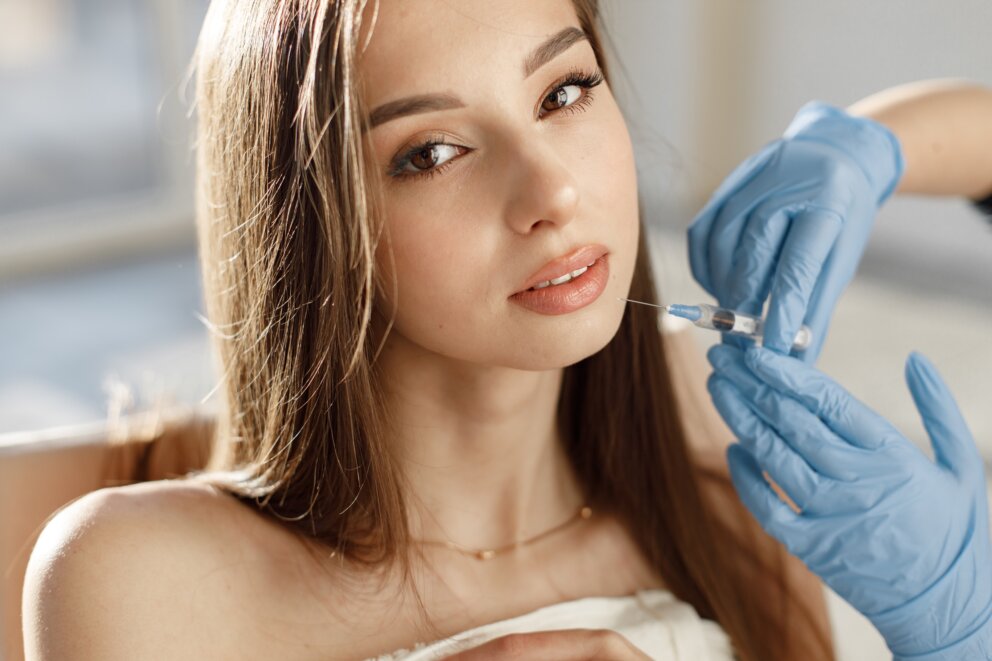Based on the latest scientific evidence and available clinical data, SARS-CoV-2 has been classified as a 3. groups of biological factors (BFs), which are classified on the basis of the level of risk of infection in humans. The virus is then spread by human-to-human transmission primarily through droplet infection. Infected droplets are released when the sick person coughs or sneezes, or when he or she speaks rapidly. Since both saliva and mucus are infectious, the virus can also be transmitted from infected surfaces to the body by touch in the eye, nose and mouth area. It can survive outside the human body for several days. The incubation period (the time from infection to the appearance of the first symptoms) is 2 to 14 days. Already during the incubation period, an individual can infect other persons.
The body's best defence against viruses is the immune system. Testing antibody levels to SARS-CoV-2 can show whether you have already encountered the virus, whether your body has mounted a defensive response, and whether your body has built up a degree of immunity through the production of antibodies. Anti SARS-CoV-2 antibody testing is one of the indirect laboratory diagnostic methods. The examination is carried out with diagnostic kits that have a quality certificate and the IVD (In Vitro Diagnostics) mark and are approved for the examination of the disease in question.
What are antibodies and how do they work?
Antibodies are proteins whose role is to recognise, mark and neutralise a virus or activate other components of the immune system to destroy it. Antibody levels persist to varying degrees in the blood even after the infection has been overcome in order to prevent a relapse. If you have the required level of antibodies, your immune system has memorised the virus and can protect you from it.
From the information and studies so far, it is clear that in the fight against coronavirus, the main defence process is cell-mediated immunity, which is mediated by cells such as phagocytes, NK cells, lymphocytes. The triggering mechanism of antibody production is not yet well understood. According to available sources, the first antibodies start to form 7-10 days after the onset of clinical symptoms (in about 90% of patients). Patients with clinical symptoms and a severe disease course usually have high antibody levels. In patients without clinical symptoms, antibody levels are low or form to a degree that is not detectable. Depending on the class of antibody, it is possible to detect their levels even after a longer period of time.
Antibodies in the IgM class are formed in the early stages of infection, correlate with clinical signs and are realistically thought to be typical of the acute phase of infection. From our experience so far, we are able to detect them predominantly in patients with symptoms and in those with a more severe course of the disease, even long term and after the infection has been overcome.
Antibodies in the IgA class can be detected in the acute/ongoing phase of infection and are highly sensitive ((ability to detect the trait under investigation). They are correlated with the clinical manifestations of the disease especially with breathing problems. A positive result in the IgA class combined with a positive IgG antibody result represents a high probability of overcoming SARS-CoV-2 infection. In case of positivity in IgA class only, a repeat collection in 14-21 days is advisable to confirm the onset of IgG antibody production and the resolution of SARS-CoV-2 infection.
Antibodies in the IgG class have high specificity (the ability to pinpoint the trait being studied) and are present after the infection has been overcome. In patients with clinical symptoms and in the severe course of the disease, the onset of their formation is expected within 14 days. In patients without clinical symptoms, then at the earliest 14-30 days after the infection has resolved.
Infection usually occurs with only mild symptoms such as cough and/or fever or even without symptoms. Symptomatic disease can manifest itself with fever, cough, shortness of breath. There are now up to 200 known symptoms accompanying COVID-19.
In severe cases, characteristic X-ray or CT findings of pneumonia, persistent fever, choking cough, diarrhea, muscle aches are present.
How are the collections carried out?
Testing is very convenient, as the sample for testing is taken as a venous blood sample most often from a peripheral vein in the elbow socket. You will know the result 96 hours later by SMS.
PRICE: 70€
You can make an appointment for testing by calling our reception:
+421 (0) 911 108 741
+421 (0) 2 52 444 022
Please observe the precautions and instructions of the staff when visiting our clinic. Thank you.
Your FRAIS Health and Beauty Institute
Ivana Bartosova




